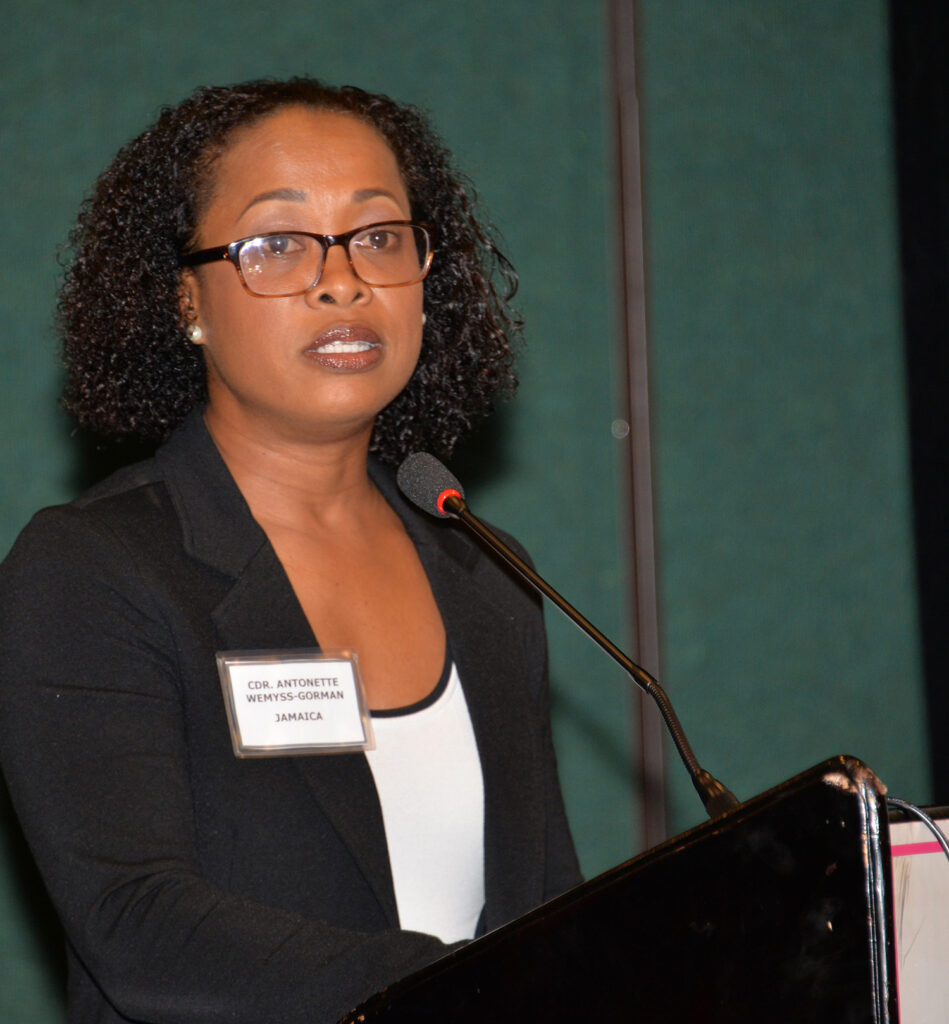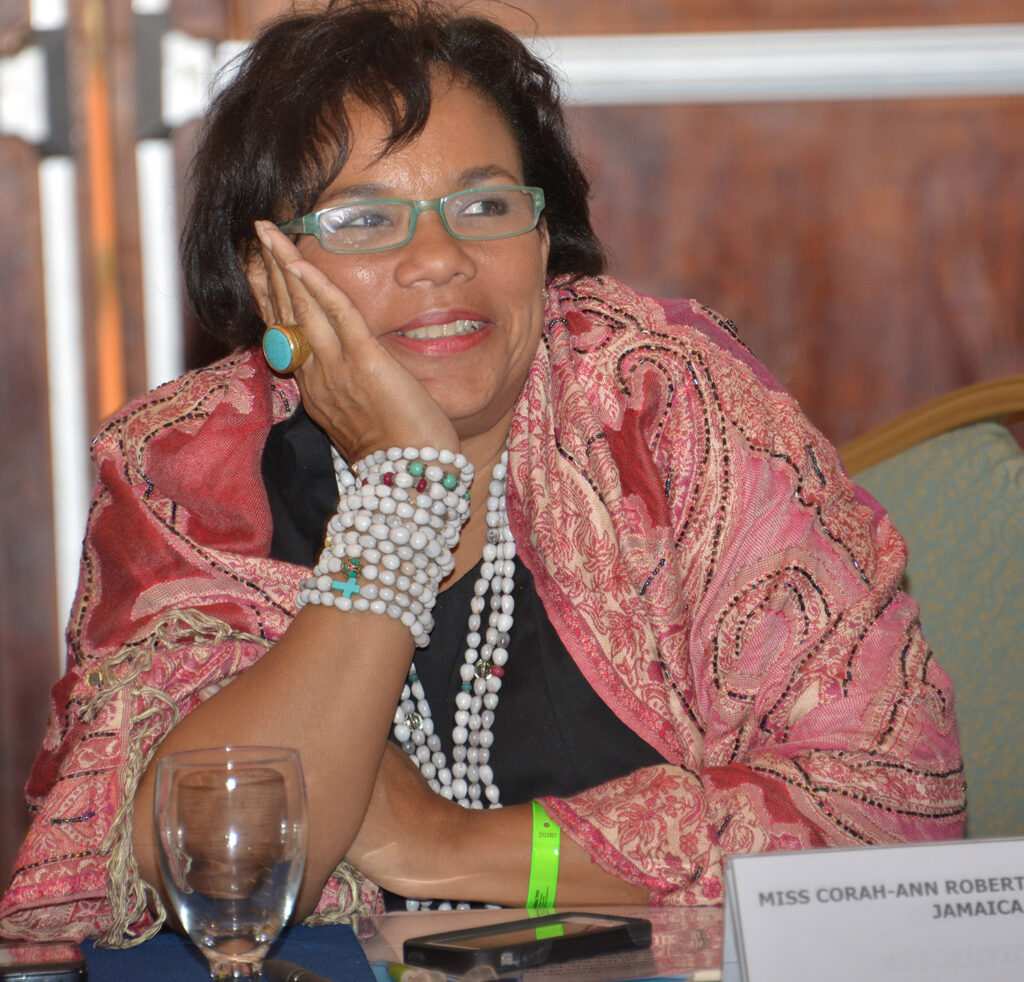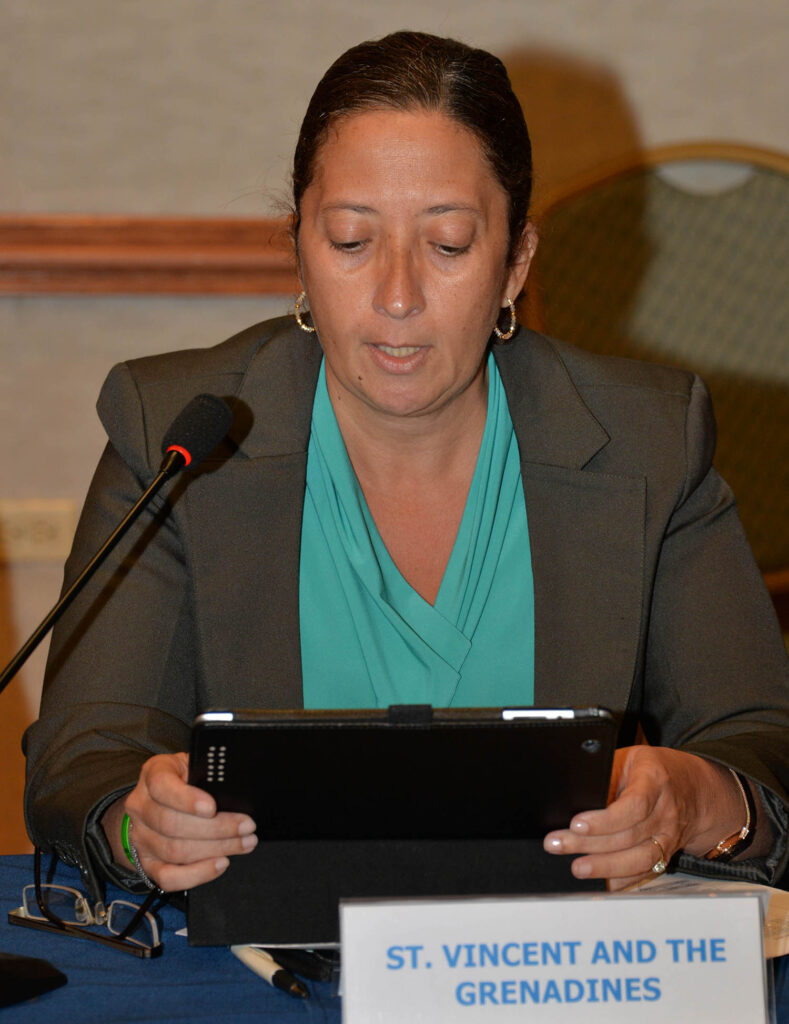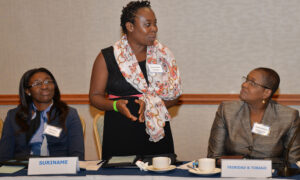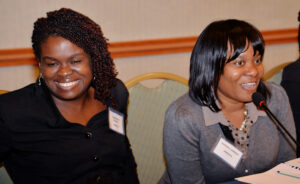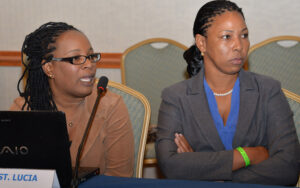Caribbean maritime history – Women in Maritime Association launched
2015 June: A new chapter in Caribbean maritime history was started in Montego Bay Jamaica in mid-April 2015. Forty-seven women from 14 countries quietly converged on the Holiday Inn Sunspree hotel and for five days engaged in discussions about development, empowerment, capacity building and progress. When they emerged on April 17, the first pages of a new era in regional maritime development had been written.
Their five-day conference was intensive, extensive and comprehensive, all at the same time. And, by the end, the women from Antigua & Barbuda, The Bahamas, Barbados, Belize, Cayman Islands, Dominica, Grenada, Guyana, Haiti, Jamaica, Suriname, St. Lucia, St. Vincent & the Grenadines, and Trinidad and Tobago had established and launched the Women in Maritime Association, Caribbean (WiMAC).

When they departed Jamaica’s second largest city they had completed the task at hand. Articles of Association had been developed and duly signed; a draft resolution for establishing the body prepared and formally adopted; an operations structure agreed and the first council members elected. The Women in Maritime Association, Caribbean was a reality with the inaugural council elected and its first 40 members active.
The association’s Governing Council comprises a president, three vice presidents, a policy officer and a treasurer.
The voyage to Montego Bay started more than 25 years earlier, while many of the participants were still in lower school; when the International Maritime Organization (IMO) developed a strategy to develop and empower women in the maritime industry.
In 1988 the IMO adopted a policy for the Integration of Women in the Maritime Sector (IWMS). It was as a comprehensive policy aimed at expanding the capabilities of women in the maritime sector. Less than 10 years later, in 1997, the world body took the next step of establishing the Women in Maritime Programme for the Integration of Women in the Maritime Sector.
Since then, the IMO has successfully pioneered the establishment of several regional groups and support networks to further the objectives of capacity building for women. These include: Association of Women Managers in the maritime sector of Eastern and Southern Africa (WOMESA); Arab International Women’s Maritime Forum for MENA and Africa; Pacific Women Association
(PacWIMA); Association for Women Managers in the Maritime Sector, Asia (WIMAAsia); Network for Professional Women in the Maritime Port Sectors of West and Central Africa; and Forum for Women Managers in the Maritime Sector, Latin America.
Also included are Papua New Guinea Women in Maritime Association (PNGWIMA) and Women in Maritime, Philippines Association (WIMAPHIL).
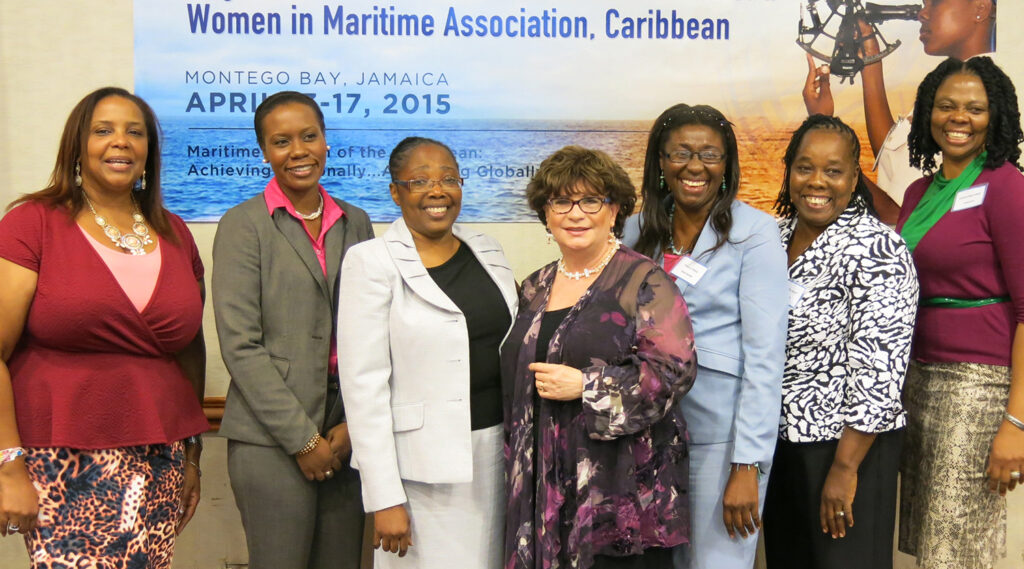
The IMO also played a major role in the establishment of a women’s association at the institutional level; the World Maritime University Women’s Association (WMUWA) in 2014.
The Women in Maritime Association, Caribbean will promote the continued education and training of women in the maritime sector. It will be an advocate for gender equality. The WiMAC will maintain concern for protection of the marine environment and for safe, secure and efficient shipping and port operations. In this regard, it will connect national, regional and international organizations with similar objectives, thus bringing women of regional shipping into a global development initiative, which can only redound to the benefit of the Caribbean peoples. []



